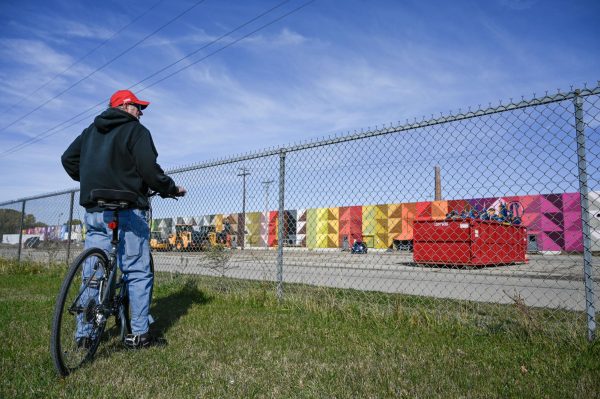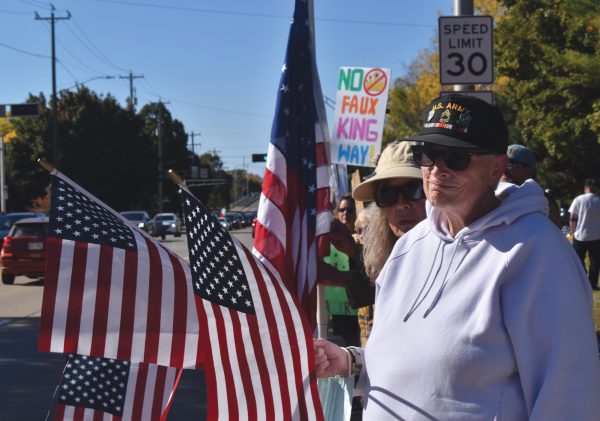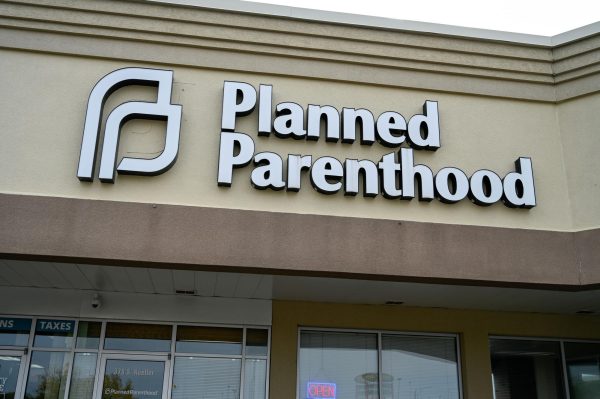Wells, Sonnleitner civil case on ice
Federal Bankruptcy Judge Susan Kelley made the decision on Aug. 29 to rule in favor of the UW System Foundation, putting the civil case on hold in the investigation of former UW Oshkosh Chancellor Richard Wells and former Vice Chancellor of Administrative Services and Chief Business Officer Thomas Sonnleitner.
The recent decision to grant the UW System Foundation’s decision states that the loans and guarantees that were made were not in violation of state law and Wells and Sonnleitner had the authority to do so.
According to court documents, the former chancellor and vice chancellor stated at a Foundation board meeting that they had authority to guarantee the debts that the Foundation would incur. Debra Birkin, vice president of financial affairs for the University of Wisconsin System, was present when Wells and Sonnleitner made their promises, and she did not dissent or raise any concerns about the guarantees the University made.
On April 16, 2017, the Wisconsin Department of Justice filed criminal charges against Wells and Sonnleitner for improper financial transactions that occurred under their former administration from 2010-2014 related to five real estate projects.
According to the original criminal complaint, the two administrators funneled $11 million in taxpayer money into five Foundation building projects including the Best Western Premier Waterfront Hotel in downtown Oshkosh; the Alumni Welcome and Conference Center; two biodigesters, which turn animal waste into electricity; and the Oshkosh Sports Complex, which includes Titan Stadium.
In January 2017, the Board of Regents and UW System asked the Department of Justice to pursue civil charges against the two former administrators. Both parties made their initial appearance on June 11 in Winnebago County Court.
Meanwhile, the criminal complaint is still ongoing and runs contrary to the state’s assertion that the criminal complaint did not have legal authority to do what they did.
The criminal case is set for Dec.10 to go back to Winnebago County for a hearing and possible consideration of a motion. According to Richard Wells’ lawyer, Raymond Dall’Osto, the civil case could be extended for another year, depending on if the University decides to appeal.
Dall’Osto said Judge Kelley’s decision sets up a conflict that the state court judge will have to decide.
“The state’s argument that what former Chancellor Wells and former Vice Chancellor Sonnleitner did was illegal or not authorized by state law is sharply undercut by the bankruptcy judge’s decisions,” Dall’Osto said.
Wells and Sonnleitner still face five counts of misconduct in office for illegally transferring money to the UW Foundation to help pay off loans. They could face more than 16 years in prison each if convicted.
There is currently a $15 million judgment against the state saying Wells and Sonnleitner had the authority to do what they did, and the state owes the money on the guarantees.
The Foundation closed the sale of one of two biodigesters on Sept.11 for $8.25 million, which paid off the $6.1 million that the Foundation owed on it.
According to the UW System Foundation lawyer Paul Swanson, there is about $6 million owed on the UWO Alumni and Welcome Center, a $12 million building the University utilizes for meetings, development, events and educational purposes.
“We own the Alumni Center, but the University uses it day in and day out,” Swanson said. “We’re trying to give it to the University; that’s the whole deal, we give it over to the University for the benefit of the University, but it was also supposed to be paid for and if there was a shortfall in fundraising, then the University was to make it up. There’s about almost $2 million worth of pledges out there and the donors are just sitting on it because they don’t know what to do.”
Swanson said the sale of the biodigester was a huge loss to the University.
“This kind of goes to show what the market is out there for these kinds of things; the market is valuing these things, and I think the University was ahead of its time when it was looking at this type of thing,” Swanson said. “If that would have been done, it would have become a compressed natural gas facility as opposed to an electrical-generating facility. It would be paid off and generating most likely scholarships to the University, a huge amount of money in the next five to 10 years.”
Swanson said the Foundation remains financially strong.
“There’s a $23 million endowment, we just cut checks for about $700,000 worth of scholarships and fellowships for this year, etc.,” Swanson said. “It’s the gift that keeps giving and the endowment basically sits there and earns money and we pay out the money that it earns for charitable purposes for which people donated money.”
Swanson said the relationship between the Foundation and the University is strained, but they will continue to support the University.
“We continue to fund scholarships, we continue to serve the University community,” Swanson said. “I would say the relationship is strained, but the Foundation serves the University community; that’s our goal and that’s what we will continue to do, regardless of whether or not we have a good relationship with the administration. The alumni and friends of the University gave a lot of money for good purposes for the University, and we continue to administer that. No matter what happens, the Foundation is 100 percent behind the University.”
Thomas Sonnleitner and his lawyer, Steven Biskupic, did not respond to an attempt for comment.







